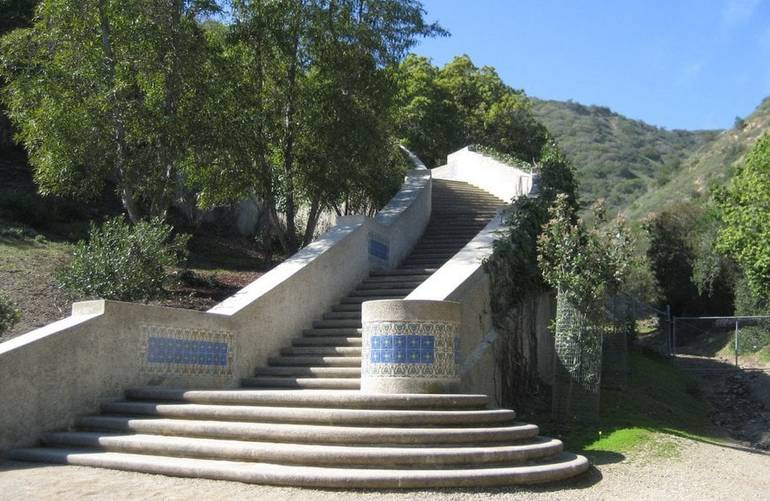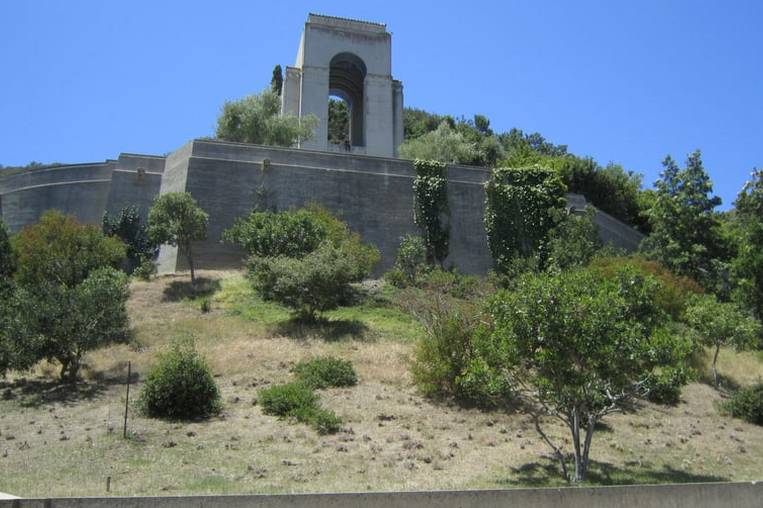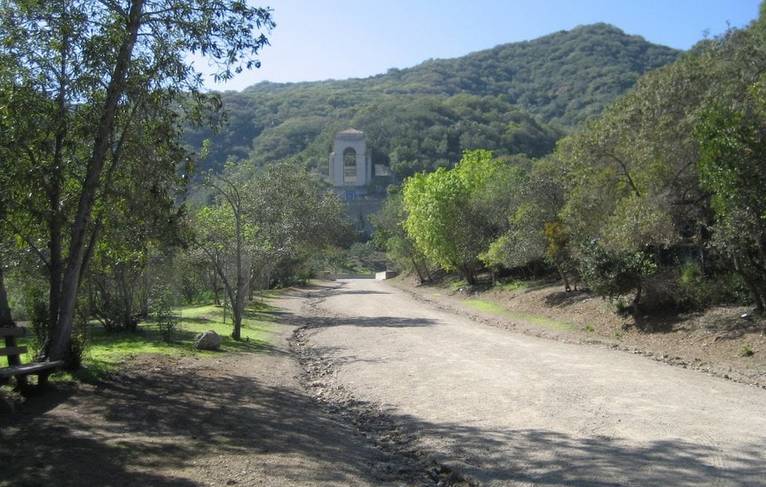
Wrigley Botanical Gardens are located on Catalina Island, a popular day trip off the coast of Southern California, about 22 miles from Los Angeles. One of the island’s main attractions, the gardens, features a stunning monument to William Wrigley Jr. and lush gardens designed by his wife.
The entire family will enjoy taking in the gardens’ sweeping views of the Catalina coastline and exploring the pathways running through its forests of rare plants endemic to California. Whether looking for a place to let the kids run around, or an escape from the hustle and bustle of Avalon, the Wrigley Botanical Gardens is a beautiful outing.

Wrigley Botanical Gardens History
Ada Wrigley completed the Wrigley Botanical Gardens in 1945 though she began work on the gardens in 1935 with the help of horticulturists Albert Conrad. Ada built the gardens around the memorial to her husband, best known as the founder of Wrigley chewing gum.
William loved Catalina Island and was a key player in its development, so the monument honors his dedication. Construction began shortly after Wrigley died in 1932 and was completed in 1934.

Wrigley Gardens Plants
Ada envisioned the gardens as a collection of desert plants from all over the world. Until 1969, the Wrigley Memorial Garden Foundation took the gardens in a different direction. The gardens now showcase plants endemic to Southern California’s coast and islands, focusing primarily on Catalina Island plants.
The Wrigley Botanical Gardens is a perfect escape from the hubbub of Avalon. Its nearly 38 acres of lush greenery and quiet pathways make for a relaxing outing that requires minimal time and effort. The gardens’ flora is sweet-smelling for those only out for a stroll, and the views are breathtaking.

Wrigley Monument
The Wrigley Monument, perched at the top of the gardens, is the best place to take in vistas, including the Catalina coastline and Palos Verdes.
After sitting at the Wrigley Monument for a while and enjoying the natural beauty stretching out to the horizon, visitors should focus on the structure itself.
Even if visitors know nothing about William Wrigley Jr., it is safe to say that almost everyone has chewed his gum at one time or another, and they have all enjoyed his improvements to Catalina Island.

Wandering around the monument, giving remembrance to the man that loved the island, visitors will not be able to help but notice the splendid artistry of the building. Rising 130 feet in the air, the structure was built with rocks from Catalina’s quarries.
The terraces and ramps are paved with blue flagstone from Catalina’s western coast. And perhaps most dazzling of all, the monument is covered in decorative tiles produced by the famous Catalina Pottery.

Although the Wrigley Monument may be the centerpiece of the gardens, the acres of trees, flowers, and bushes surrounding it make the Wrigley Botanical Gardens the beloved refuge that it is today.
Although anyone can enjoy the vibrant and colorful vegetation, visitors who know a bit about plants will be particularly delighted to find some of California’s rarest flora: the Catalina Mahogany shrub, the Catalina Ironwood tree, St Catherine’s Lace, the Catalina Manzanita, the Catalina Live-Forever, and the Catalina Bedstraw.

Wrigley Botanical Gardens Admission
The Wrigley Botanical Gardens are open all year round from 8 am to 5 pm. The entrance fee is modest and free for children under 12. It is best to visit in the morning or evening and avoid midday’s heat and intense sun. Although the gardens can be enjoyed for hours, visitors on a tight schedule will still be able to appreciate them during a half-hour visit. The gardens are about one and a half miles up Avalon Canyon Road.
Although it is uphill, visitors can walk there in about 30 to 45 minutes or bicycle in less time. Another option for those not up to the physical exertion of the trip is to rent a golf cart and drive up to the garden entrance. The Avalon Trolley can also take visitors to the gardens from downtown Avalon, Pebbly Beach, or The Casino.

Getting to Catalina Island
Catalina Island is best reached by ferry, which takes about one to a half hours, depending on the departure point. The best ferry departure points from Los Angeles are Marina del Rey, San Pedro, Downtown Long Beach Landing, and Long Beach Queen Mary.
From San Diego, visitors should depart from Dana Point or Newport Beach. It is also possible to reach the island by helicopter or chartered plane, which is faster but more expensive.
Leave a Reply